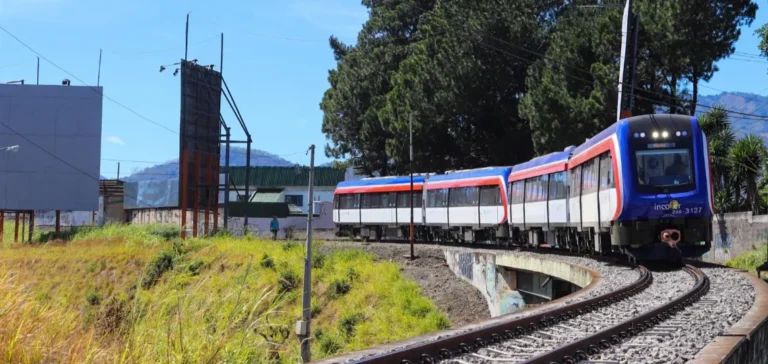The European Investment Bank (EIB), through its development arm EIB Global, has granted a $250mn loan to support the construction of Costa Rica’s first electric train system. This marks the EIB’s first financing in the country in over a decade and an unprecedented cooperation with the Central American Bank for Economic Integration (CABEI) and the Green Climate Fund.
A structuring project for urban mobility
The project will be implemented by the Costa Rican Railway Institute (Instituto Costarricense de Ferrocarriles – INCOFER) and forms part of the European Union’s Global Gateway initiative, which aims to support infrastructure in partner countries. The operation includes the development of two double-track lines totalling more than 51 kilometres, connecting Paraíso to San José, and San José to Alajuela.
The plan includes the acquisition of 28 electric train units, the construction of 30 stations, two terminals and nine level crossings. The system is expected to deliver service every ten minutes, seven days a week, accommodating over 100,000 daily users.
Coordinated financing from international partners
This project also represents the first joint operation between the EIB, CABEI and the Green Climate Fund. This institutional alliance will fully fund the project without the need for public subsidies, according to official statements from the parties involved.
The new transport system is set to benefit over 3 million people in the San José Greater Metropolitan Area by improving access to essential services and reducing commute times. Particular attention has been given to accessibility for users without access to private motorised transport.
Support aligned with the country’s energy capacities
With an energy mix that is nearly 100% renewable, Costa Rica will be able to power the rail network without relying on fossil fuels. The electric train is expected to cut up to 18,000 tonnes of CO₂ emissions annually.
The financial partners aim to provide a reliable, structured, and long-term viable urban mobility model that aligns with the country’s fiscal capacity. The EIB plans to support up to €100bn in investments by 2027 under the Global Gateway programme.






















